How to Deal With Human Waste When the Power Goes Out
Today, it’s all about dealing with human waste when power goes out. Dealing with human waste after the power has gone out can create more work and prepping, but it is still essential. Not properly disposing of it can allow flies and even your pets to get into it.
They will get it all over them and bring the bacteria back into your home, onto your meal-prepping area and furniture. Now that we have your attention, here are a few ways that you can safely dispose of waste, even when the power is not up and running.
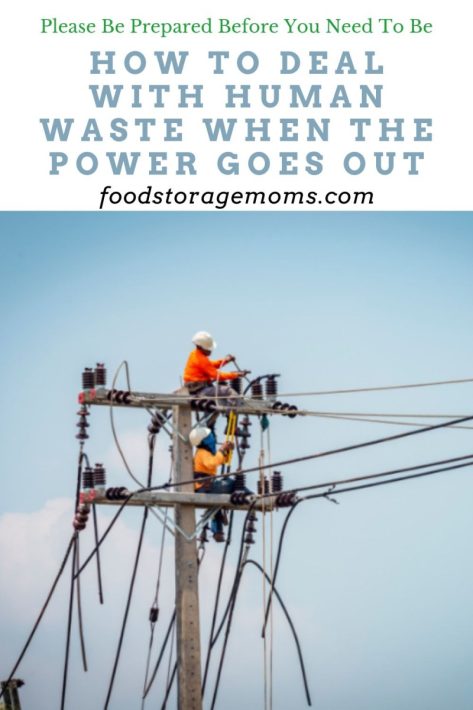
Tips for Human Waste and No Power
Dealing with human waste and no power isn’t something you may think about regularly. However, at Food Storage Moms, I want to teach you how to be prepared in all circumstances. Keep reading to discover how to deal with human waste when the power goes out.
Can You Use the Toilet?
The simple answer is yes. You can still flush your toilets even after the power has gone out. But only for a short while. After that, you’ll have to devise other methods for disposing of your family’s waste. If you have a septic tank, you are one lucky person. Please check with your local county if the “sewer flow” is above or below your home.
We were further up the hill when we lived in Southern Utah, so the city told me we would be fine. As I remember, they said they had a generator, but we would be alone once the fuel was gone. Well, one day our sewer lines in our subdivision backed up, never heard why but our toilets gurgled but the homes down the hill had sewage everywhere in there bathtubs, showers, toilets and sinks.
Please stock your house with Clorox Bleach or a brand you trust. Please keep in mind that “splashless” is not a disinfectant. Clorox: Why I Store It
#1 Clorox Disinfecting Bleach

#2 Splashless Clorox

Are You on a City Sewer System?
If you live in the city, you want to be very careful about flushing the toilet after the power has gone out. It’s best not to flush your toilet unless you’re confident that the sewage system in your neighborhood all runs downhill. If the system relies on pumping the sewage along its path to the treatment plant, there could be issues.
Those pumps rely on electric power to work, so the pumps are dead if the power is out. If pumps are part of the system, flushing the toilet will mix your line with your neighbors to the pump station, and then a backup starts, which could bring their waste back into your plumbing. This includes your sink and bathtub, too.
Shutting off the Water to the House
It might be in your best interest to go ahead and shut off your main water line altogether if you think the cause of the power outage and related issues could affect the quality of the drinking water coming into your house.
If you decide to turn off the culinary water coming into your home, you’ll need to locate the main valve. Usually, you can find it in the basement, in a utility room, underneath the kitchen sink or laundry sink, or out in the garage near your water heater.
There’s also a possibility that it’s in front of the house, close to the street. Go ahead and turn it off until the power is restored.
Have a Supply of Water Set Aside
Filling your bathtub with water, or having gallons of water set aside for “crappy” situations such as this, will be a great option. Pouring the water into the toilet tank and hitting the flushing lever can help your toilet flush during a power outage.
If you have a big enough bucket, you can pour the water directly into the toilet quickly, and it will automatically flush itself. Hopefully, the power will return before you run out of water.
5 to 6-gallon Bucket with Double-lined Trash Bags
Another method for dealing with your family’s waste is this. Have a five or 6-gallon bucket on hand and line it with two trash bags. To ensure it holds, use duct tape to keep them in place.
Next, you could put a toilet seat over it or two 2 X 4s across it to have something to sit on. After finishing your business, put kitty litter or sawdust over it to help cover up the odor. This way, you can use the trash bag more than once.
When you’re ready to dispose of it, add quicklime or another disinfectant to seal the whole ordeal. You may want to see how to make your emergency toilet here.
Do Not Use Human Waste as a Compost or Fertilizer
I know this is a debatable topic. You may read that you can use your human waste in your garden as fertilizer after composting it. Using your waste for compost or fertilizer for your garden is not safe.
Human waste typically contains viruses, bacteria, and other pathogens. Composting human waste at home is risky because we can’t heat the compost pile to a high enough temperature to kill the items stated above. Please do research, and YOU decide what works for your family.
Large commercial companies have ways to get the composting materials to extremely high temperatures, maintain those high temps steadily, and produce a product for agricultural areas. It is then tested to ensure it is safe to use anywhere by the EPA (Environmental Protection Agency).
Build Your Trench Latrine
Building your trench latrine effectively eliminates waste if you’re without power for an extended amount of time. It’s a trough you dig underground that catches all your sludge.
This method is doable if you live in a rural area and have a yard to do it in. You’ll want to build it at least 2 feet wide and 4 feet deep. Please dig it several hundred feet away from any water or food source.
You’ll also want to build some privacy screen so you don’t catch any neighbors spying on your business or using it themselves. Placing stakes in the ground and putting a simple tarp or covering over the area hopefully will give your family the privacy you want.
Keep It Sanitary
Remaining sanitary will prove more complicated when dealing with waste after the power has gone out, but it is still doable.
Make sure you have extra hand sanitizer, disinfectants, bleach, and disposable gloves that you can use to deal with your waste.
Again, it’s wise to have extra water set aside for situations such as this to help flush toilets and wash hands.
If you think you can bag up your garbage and put it out with the weekly trash, you need to think again. More than likely, if the power is out and water systems are not functioning, the city waste disposal/garbage truck service probably won’t be either.
You’ll need to plan on holding on to those bags for a while. Do some research and find out if your local landfill will let you bring the bags there for disposal. That’s if the roads to the landfill are usable. Boy, there are so many issues to think about.
Matt gave me this link: Field Facilities for Human Waste
Final Word
These are just a few ways to help you deal with your family’s waste after the power has gone out. If you’ve gone without power for an extended time, what did your family do to eliminate your waste? Please keep prepping. May God bless this world, Linda
Prepare Your Family For Survival by Linda
Copyright Image: AdobeStock-1522643 by Warren Rosenberg, Electricians Working AdobeStock_258154011 By Chanchai

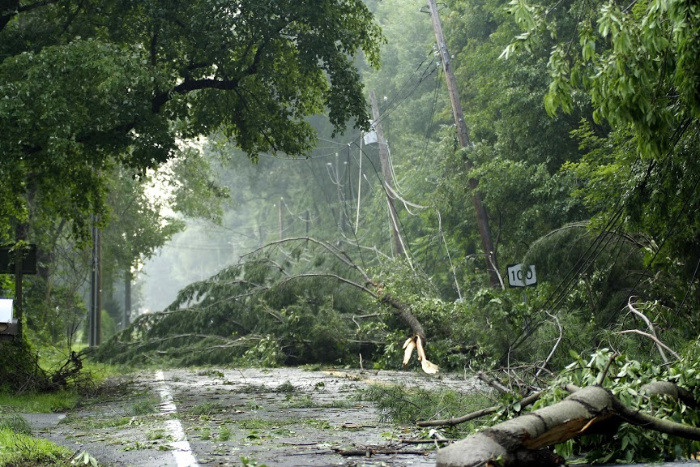

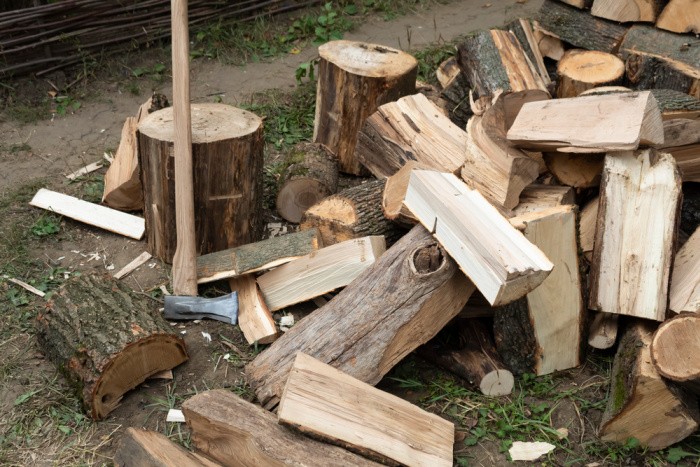
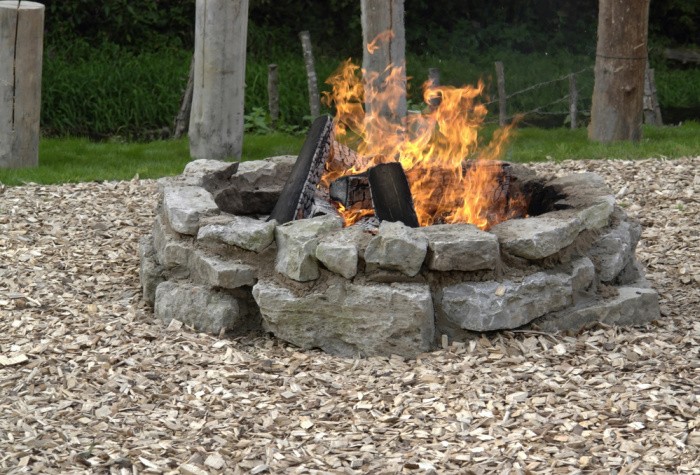

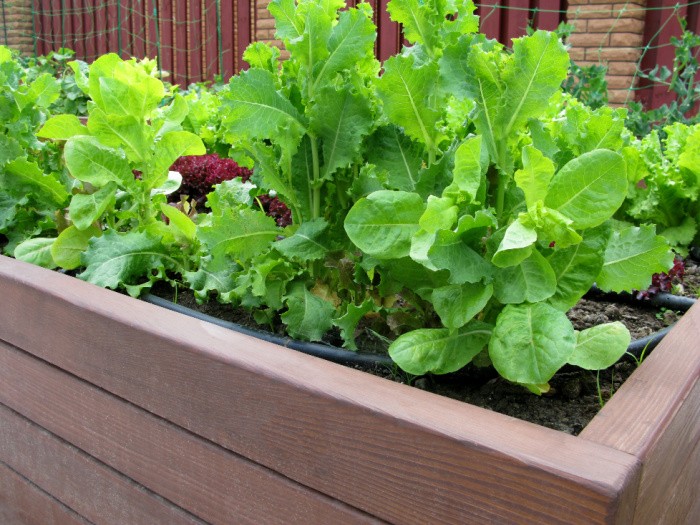

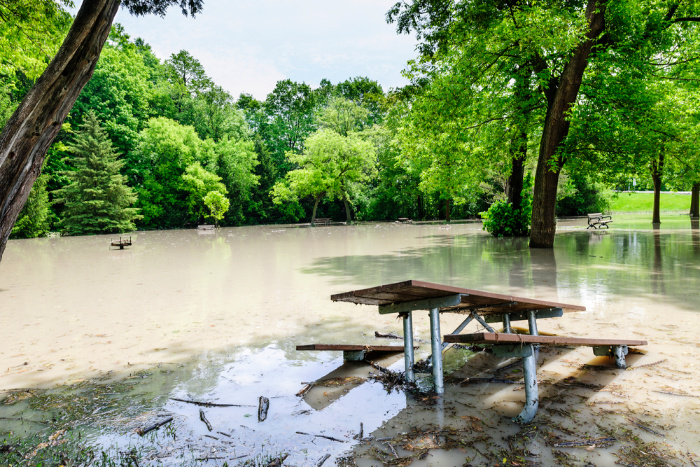




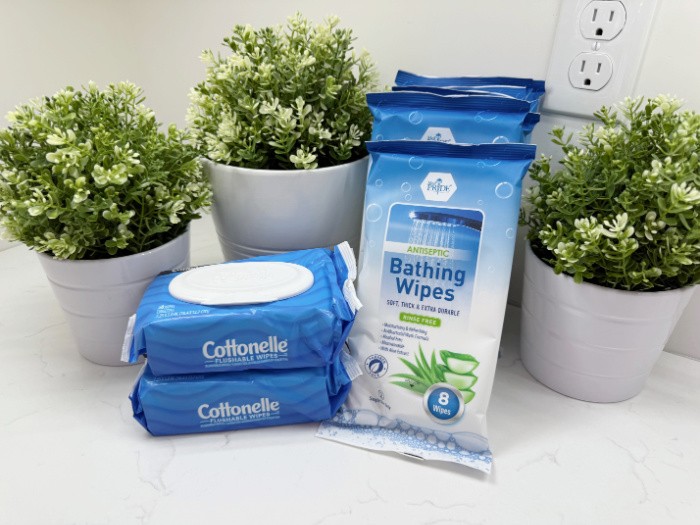

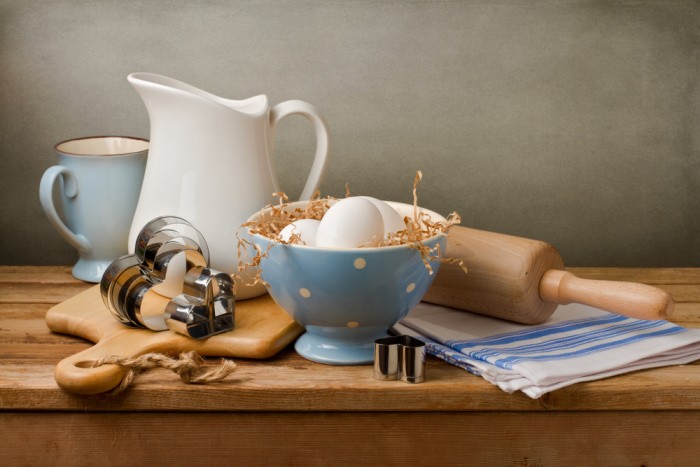



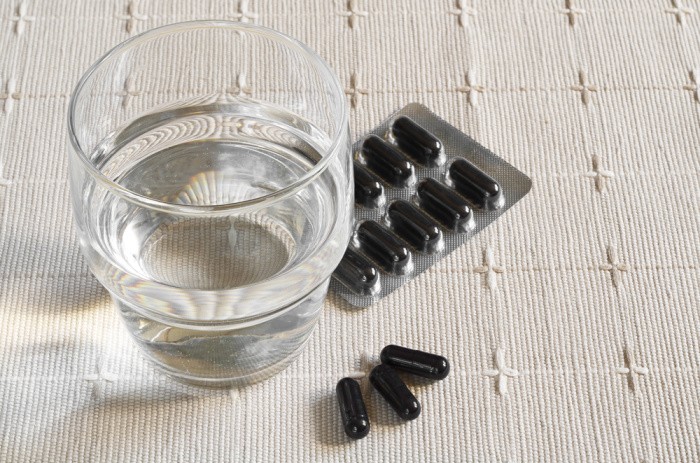
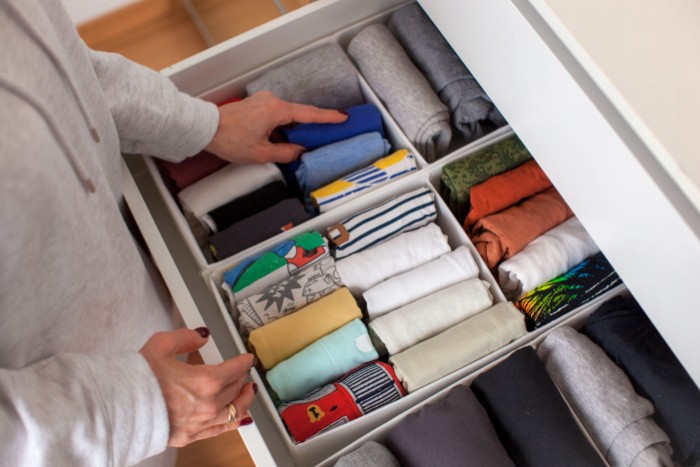

Linda,
Here in the Texas Hill Country, we have a conventional septic system that we have pumped every five years. The guy who did that the last time said we probably could have waited another five years instead of having it pumped that time. So, as long as we have water to flush, from saved rainwater or whatever, we are good to go (pun intended) for at least five years or more. We are scheduled to have our five year pump done in January, so poop problem solved for a number of years. . . . LOL!
Hi Harry, this is the best comment ever! Those people that have a septic tank that service, as you do, will really be good to go! LOL! Linda
We purchased a toilet years ago that burned the waste using propane. They also have electric ones but that wouldn’t be good if the power was off. These are quite costly however but still another option. My preference would have been a compost toilet system but the bucket does the trick.
Hi Linda, I have heard about those compost toilets. Life will surely change when we have to deal with this after a major power outage. Linda
Good article! I have found that using wood washes from my wood heater works as good as any kitty litter and is free. No odor easy to bury and have never had a critter dig it up
Hi John, thank you! Great tip on using the ashes from your wood heater!! This is honestly my biggest concern, where is all the “stuff” going to be buried. We take that garbage pickup for granted. Thanks again, Linda
I’m on septic.
You can burn it like the military does. The fuel might be hard to come by though.
Hi Matt, I’m glad you’re on septic. How did the military burn it? Did they have bins, did they dig holes? Thanks Matt, Linda
We used 55gl barrels cut in half and a mixture of diesel and mo gas (regular fuel). We’d also throw in used oil. You then stir it and burn it down.
Nasty job
Here is a handy guide
https://www.armystudyguide.com/content/army_board_study_guide_topics/field_sanitation/field-facilities-for-huma.shtml
Hi Matt, I knew you would know how to help us! This is exactly what I needed! Thank you so much! Linda
My recommendation:
(http)humanurehandbook.com/index.html You don’t even have to buy the book–all the information is there on the website.
Thermophilic composting, plus time (3 bins–one “loading,” one sitting for a full year or more, one to use), and you really are safe. Goes on our garden and fields. We use shredded leaves, wood ashes, shavings, sawdust, and shredded paper as cover material. We still have the flush toilet, of course, but the “lovable loo” is what we use on a daily basis–plus in our old farmhouse, it now gives us an upstairs toilet!
Hi Rhonda, thanks for the tip! This is awesome, Linda
Still using our lovable loos. One is even fitted with side-rails (and sitting on a raised platform) for my handicapped husband. I’m a little lazier now–I bury the bucket contents in the farm manure piles instead of a separate set of compost bins, although it still gets thermophilic composting and at least a full year in the current pile to break down.
I *did* have to write on the underside of the lid of the one my husband uses–for the benefit of the aides–that wet-wipes go in the trash, not the commode!! (Yeah, don’t ask.)
We bought place in 1971 without power with an outhouse. (If you use sawdust or even dirt as a cover an outhouse is better than a trench with a tarp. We had a pipe in the side of a steep hill that supplied our water by filling pails by catching the water in a small pot and pouring it into the pails and covering it with lids to carry it up the very steep hill. Then in 1985 we bought a farm with no power, outhouse and an old hand pump at the well. Wonderful life. We raised our family in this peaceful setting.
We heated our home and cooked on a woodstove.
Hi Linda, wow, you really did have a wonderful life. Your family learned a lot I’m sure. Great comment, Linda
in regard to shutting off the water >>> if bugging out – shutting the water valve at the street is a step better than just closing the house main valve …
if you prepped your home for a winter bug out and drained the water lines & prepped the toilets & sinks >>> somebody coming in and re-establishing the water flow could ultimately destroy your home – safer is better …
Hi Illini, thank you for the comment, Linda
Can You Use the Toilet?
In our case this answer is always YES!!!
Growing up my parents had a rural property, our “cottage” where we dug a large hole 2x4x8 foot deep and my dad & I build a small shed with a bench having twin holes. Using normal toilet paper and keeping a bag of lime on hand, we easily kept down the odor and insects.
My wife and I live on a rural property with a well & septic, and when the septic was installed it was a large tank, based on the square footage and number of bedrooms. We had it pumped about 10 years ago; but, with the three kids now gone, we hardly tax that big tank any longer.
We also have a whole house auto start propane fueled generator and more than 3000 gallons of fuel on hand. We do however; keep several 5 gallon buckets nearly full of water, with loose fitting lids on top to keep out bugs & dirt, specifically for emergency flushing. With modern 1.6 gallon flush toilets, each bucket gives us at least 3 flushes, and in a real emergency, we have a creek on the property where we could haul more flush water.
Before we had the generator this was essential; but, even with the generator, we’ve needed them on a few occasions, since the well pump has died on 3 occasions, about every 10 years, and we still have to flush until we can get another and install it.
While a bit off the main topic.
For potable water we keep ice in the freezer, some bottled water, and the RO pressure tank holds another 7 gallons, plus we have DIY water filters that can make even creek water potable. Ours are equivalent of the Big Berkey and can be easily constructed using some 5-gallon food grade buckets and a filter kit like this one on Amazon. Instead of a link, I’ll just let you look for it: ” Gravity Water Filter Kit for DIY Purifier, Includes .2 Micron Ceramic Filter, Pre Filter, Dispenser, and Instructions by SHTFandGO”
For around $30.00 plus a few buckets, a drill & some time, you can make potable / drinkable water.
HI Ohio Prepper, thanks for another great comment! You are really in good shape. You planned out your living conditions very well. Thanks for the tips on the Gravity Water Filter! Linda
Good ideas here again Linda,
Yes, the old Army trench latrine, used it many times. When you dig the trench, pile the dirt to one side a little bit away from the trench so you have footing on both sides, much easier to use if you can straddle the trench, and keep the shovel close by. When you are finished whatever, take the shovel and lightly cover it with dirt, no smell, no bugs, ready for the next visit..
Oh my, this article and comments sure did bring back memories, none of which I Ever want my children to have. My family went from having a ‘very modern’ ranch to living in town to living at a totally unmodern farmhouse, then to a barely modern farmhouse. By modern, I mean having running water to kitchen and bathroom, having a flush toilet. When I was 5, we’d had to move to the unmodern home. My mom had to handpump water at the sink. We had a bucket by back door for when we didn’t want to walk to outhouse at night. In later years, , she told me she was just glad she didn’t have to do this outside, lol. We heated water on our stove for cooking, dishes, bathing. NO water was wasted! The warm dish/bath water was poured down the outhouse to help the decomposing. About once a yr, my dad would dig a new hole. Outhouse moved over. I guess I learned a lot from this when I built my rural house in ’03. Linda, your tips would be invaluable if we have a power outage, whether city or rural. I do gotta say that if a person is thinking buying rural, that they need to understand the type of soil they have as to drainage and compost of human waste in the event we don’t have reliable electricity. Almost all septic fields/tanks depend on pumping rather than gravity. I think that was an old thing, as I remember our place that sat on a hill: our uncomposted septic ran into a ditch behind our house. We had flooding that year: our well was contaminated. My folks had to pay for 50 gal water tanks that spring. We moved in June, to a place that had a cistern. Well water was only fit for animals. Mom said it was better than the tanks. And, we had a ‘composting’ septic (pressurized gravity) that just cost a little bit for electricity. Now, in my modern years, I have a Huge septic mound system. The pump does need electricity but very little, and certainly could be done by solar or battery power. I also know my soil so know where I can pump fresh water without contamination. Um, personally I’ve peed outside enough while working to know that this won’t affect my groundwater. For city folks, I recommend having a lot of kitty litter!
OH Wendy, oh my gosh, you have learned so much throughout your life! Your dad digging a hole and moving the outhouse is awesome to hear. We may be doing that sooner than later!!! LOL! Great comment, Linda
Years ago when we had our septic system cleaned, we were told never to use the products like Ridex. etc. on the market to keep your system clean. It only causes problems. He told us to use just regular yeast (like for baking). That helps digest what is in the tank. We have used it ever since. We have had no trouble in all that time. We only put it in once a month or so. It is a lot cheaper and works great.
Hi Cheryl, wow, great tip on the septic tanks!! Yeast, that’s the best idea ever! Linda
As a Girl Scout troop leader, I have plenty of experience digging trench latrines. Some of my scouts (understandably) aren’t too keen on using them, so they’ve been known to “hold it” and make themselves constipated. Out of concern for their health, I now always cook chili on the first night of a campout, which takes that option off the table!
Incidentally, our policy is to go 100 feet from camp to pee, and 200 feet from camp to dig a latrine (used for more serious business). Maybe that’s where the terms “number 1” and “number 2” come from.
Hi Stephanie, oh my gosh, I LOVE LOVE LOVE your comment! This will help all of us remember 100 feet for “number 1” and 200 feet for “Number 2”! AWESOME! Love this, Linda
I believe I mentioned that my construction crew uses porta-potties at remote job sites. At even more remote sites, where we can’t even have a portable toilet brought in because the roads are too bad, I have a saying that I tell my crew… “Don’t take the kids to work!” In other words, remember to “drop the kids off” before work. But I bring a toilet roll in case someone forgets.
Hi Jack, this is hilarious, you do what you got do when you need to! It’s a good thing you bring some toilet paper! Linda
Yeah. I tend to think people ought to plan ahead better to avoid such incidents… but I’m not THAT mean.
I also get on them about going a long way from the road and the worksite, if they do have to go. I had one guy who picked what he thought was a private spot in some bushes… and ended up “mooning” our female client as she drove up for a surprise inspection. I had some words with him about that. Thankfully she saw the humor
Hi Jack, now I have the giggles, oh the things we can tell about our workplaces! Thankfully the client understood!! Linda
Heh, glad you liked it.
Just out of curiosity, what would be your response if you were the client?
Hi Jack, you have to go with it because if its impossible to bring a porta potty, its pretty much like camping. Dig and bury away from any waterways. Linda
I do really encourage my workers to take care of number 2 before work, becuase I don’t want them polluting the job site. Especially since some sites are near water with no real way to get far enough away.
But, I do understand that “emrgencies” happen, so I bring a toilet roll. If you ask for it, I will make fun of you a little. If you’re not willing to risk that to get the paper, then you don’t really have to go that bad.
HI Jack, well, I can see why #2 would be a problem on a job site near water! You know, some of us take those white porcelains for granted! Thank you for reminding us how hard you all work outside in the heat and cold! Linda
Haha, I meant more like what would you say in the moment. “Hi, how’s it going?” doesn’t quite seem like the right thing to say. Maybe “keep going, don’t let me interrupt you!”
Hi Jack, I love it! Now I have the giggles again. I would probably act like I didn’t see it. Linda
Gosh, the mental image made me laugh – and blush. Poor him. Poor her. Hopefully she learned from that that she really should provide her workers with toilets.
Hi Sarah, oh my gosh, I have the giggles, I remember you telling me abut the two seater! Best comment ever! Linda
Yup, I tell my guys not to take that porcelain for granted. Use it while you got it! Drink your coffee before work, not when you get to work! Otherwise I’m gonna tell you to hold it, unless you’re really bursting.
But yeah, think of us next time you’re sitting on that porcelain.
Hi Jack, this is so funny, because I was thinking, hmmmm….could your staff bring their own emergency toilet with chemicals to help with the odor?? LOL! Linda
On your advice I ended up buying a chemical potty and putting it in the back of the van, available to all employees. Lucky thing too, because this morning I overslept and had to break my own rule of going before work.
Only problem is the back window of the van isn’t tinted. People can only see you from the waist up when you’re on the pot, but they can see you making funny faces if you’re having trouble.
I’m sitting on it while typing this and my employees are waving at me. Still glad I brought it though. If I didn’t I’d be in quite a fix!
Hi Jack, oh my gosh, I have the giggles, thank goodness you brought it to work. Love this story! Linda
Yeah, I was thinking of something like that. But I’d put a rule of “if you use it, you get to empty it after work!”
Talk about taking porcelain for granted… I still think about that client in her high heels and suit, who saw my employee doing his business in the woods. I bet she didn’t take her porcelain for granted after that! I doubt if she ever had to do that in her life. I wonder what she thought when she saw him.
Hi Jack, oh yes, they would have to empty if they use it, rules are rules. LOL! Oh yeah, the lady in the high heels, not sure what she thought! It’s life! Linda
Linda, excellent article on an important topic.
I’m glad I’m on a septic system. Ours is oversized (for a family of six and it’s just the two of us). We take care not to put any grease or meat waste down the drain and if we use bleach in our laundry we dump some Roebics down the toilet the next day to keep our microbes happy. We had the system pumped when the moved in 12 years ago and then again a couple of years ago. The guy who pumped it said it was the cleanest system he’d ever pumped and we really hadn’t needed to do it. He said the way we kept it healthy, we probably never needed to get it pumped. Don’t know about that but we’ve settled on doing it every ten years, just to be on the safe side.
Matt’s military burn it method works but the stench is vile and memorable, plus in a SHTF scenario you will have better uses for diesel.
We had an outhouse when we had our mountain property in Colorado, we dumped wood ash from our wood stove as well as agricultural lime on top of our “deposits.” It kept the smell and the flies down, and in twenty years we never had to relocate it or clean it out. We had seats carved from 1 1/2″ styrofoam to keep our tushes from freezing in the wintertime.
There are apparently ways to process human feces safely for use in your garden (see The Humanure Handbook on Amazon), and I know the Chinese have done it for thousands of years, but I’d avoid that step unless it proved absolutely necessary.
Hi Ray, this is one situation that is not going to be fun to take care of safely. We will do our best to handle the stuff, carefully. You are so lucky to have a septic system. Love it! Linda
Linda, we live in a first floor apartment in Central Texas. Does this mean if power/water goes out we will have sewer issues from the 2 floors above us? During the last horrible freeze here in 2021 water was shut off because of broken pipes and people were using pool water to flush their toilets. No overflowing toilets I’m aware of, but if there is a problem someday I wasn’t sure if “stuff” was going to run downhill, so to speak. We’re expecting another round of bad weather and I want to be prepared. Anyone said anything about apartment sewer issues?
Hi Kay, great question. First of all, I am not a plumber so my answer would be a guess and not totally accurate. It all depends on how it was plumbed. Mark and I have built several homes and finished basements. I remember in Texas when they had that really bad ice/snow storm I learned some of the homes had plumbing in the ceiling. The pipes broke and flooded the houses. We do not do that in Utah, that I know of. I would call your city tio get the answer because they have the plans to your apartment complex. Or ask your landlord. Lets see if any of our readers have thoughts. Great question, Linda
Really shitty article….Sorry Linda, I couldn’t resist. I have several medical issues that have me feeling if I can’t use the porcelain throne…..well let’s just say it would not be good…. We do have a commode from when my husband had hip replacement surgery that we could line with plastic bags, and numerous large laundry detergent bottles filled with water for flushing. Not the greatest, but something.
Hi Chris, oh my gosh I have the giggles, you know me well, I would laugh! Anyway back to the toilet situation, I actually bought another portable toilet just like what you are talking about. If they are good enough for surgery rehabilitation they are good enough for me. I have a few choices for Mark and me to use. You can now buy them with round or elongated toilet seats, perfect! If one is not acceptable I would use another one stored safely ready for use. You can do this, my friend, we are survivors! Linda